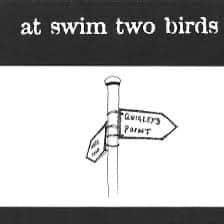Are You Real? Unicorn
“Nel reale si rischia di soffocare, nell'irreale di perdersi” - Mario Andrea Rigoni
Partiamo da un poeta, scrittore, saggista e abitante delle stelle, dei sogni, dei contatti con l’intimo: un modo perfetto per iniziare ad avvicinarci a questo stupore sonoro che conduce a una apertura alare nel territorio della confidenza che diviene coraggio.
Ed è uno spettacolo commovente vedere che il protagonista è un animale fantastico e fantasioso, il miglior alleato dei sogni di color bianco, che accolgono la fuga e la realtà per enfatizzarne i movimenti nei quali la libertà e l’ingegno viaggiano affiancati.
Ci ritroviamo così a scrivere del ritorno discografico di Andrea Liuzza, aka Are You Real, dopo cinque anni di voluta e capace distanza dal mettersi in gioco. Lo fa con la lentezza, l’atmosfera dolce di un movimento prossimo al sonno, alle attività cerebrali, alla passione per un incontro illuminante come, nella sua verità specifica, è quella dell’unicorno, emblema che resiste a ogni cambiamento.
La struttura del brano rivela una dote quasi scomparsa che è quella di dare voce alla semplicità, contornandola di quella modernità tecnologica che la fortifica e la mette in grado di connettere l’antichità dell’essere umano e la modalità odierna. Qui si svela la magia di questa composizione che, non solo porta a passeggio nel tempo l’aspetto onirico, ma ne traduce i simboli, gli impeti, i movimenti che adoperano la strategia di una forma canzone ridotta al lumicino: la strofa è anche il ritornello, ci troviamo davanti a un non dichiarato apparato strutturale che vede la parte strumentale fare da connettore a slanci emotivi che sono poi saldati dalla voce e dal cantato di Gintsugi, artista che cala il suo asso nella manica. Che è quello di non sovrastare il sentito che precede la sua presenza bensì di divenire un ulteriore processo di accompagnamento, nella stratosfera, tra semafori e scie di luci che ampliano la già maestosa figura dell’unicorno.
Tocca, fa riflettere, trasporta in un luogo rarefatto e appartato la mancanza di una ritmica assordante, facendo del suono l’amico dell’intelligenza: nulla è esagerato, scomposto o maleducato, in quanto Andrea Liuzza, nella sua regia artistica, scrive un brano che si dilata con i suoi accenni, le sue movenze e la sua aritmetica precisa, per poi lasciare, nelle scie delle sue parole, atomi leggeri che diventano impronte dell’anima.
Malgrado il background citato dallo stesso Andrea, il Vecchio Scriba sente una scrittura matura e libera da condizionamenti. Lo si deduce dall’utilizzo delle voci, dalle sospensioni, dalla dolce tensione, che non hanno chiaramente il timbro e l’aspetto di quegli artisti da lui stesso nominati.
Qui vive tutto lo spessore, l’intensità, la libertà di cui lo stesso animale è simbolo, profeta e compagno da millenni: Unicorn vive di suo, senza davvero essere frutto di ascolti musicali perché capace e conscio di una sua direzione, di una istintività educata che accarezza l’ascolto.
L’indole del sognatore è quella di avere alleati (l’armonia spirituale per prima), ed è ciò che si vive durante questi minuti di ascolto.
Ci sono ideali che viaggiano e attraversano il sonno, per essere storia, sentiero e luce, creando stupore ed eccitazione, al rallenty, che è il vero prodigio di questa composizione. Le difficoltà, i dubbi, lo scetticismo, l’indisposizione, sono fattori che l’unicorno conosce, sciogliendoli con la sua morbida naturalezza.
Are You Real traduce, spiega, fa divenire reale questa leggenda e la indirizza verso il nostro impianto uditivo per poi creare immagini che, parallelamente, siano in grado di mantenere il contatto con la realtà.
Un luccichio psichedelico, in un quadro sonoro che pare partire da una scheggia degli anni Sessanta, data l’enfasi che il cantato sa far scaturire. E poi le note, i pochi ma ben strutturati accordi riescono a creare una clessidra emotiva, un cantato che si fa piuma e mattone nel suo breve circuito.
Un episodio musicale che crea compromessi, slanci ma soprattutto induce all'introspezione, come offerta e non come richiesta: una cortesia, una gentilezza, una stretta di mano morbida che si trasforma in abbraccio, grazie a una levitazione tenuta tra la sospensione e lo slancio.
Quando si crede che vi sarà uno scarto ritmico, Unicorn diventa un raggio di sole, ingovernabile, che non scappa via ma conferma, e conferma, e afferma la sua criniera di note che si fissano in un innamoramento inevitabile.
Teatrale, ipnotica, esaustiva, questa gemma contiene spruzzi di New World Music e Ambient, senza cadere nella tentazione di una sterile imitazione: è solo uno degli ingressi, delle modalità che ha per erudirsi per prima. Sembra che non finisca, che sia spavalda ma, come una goccia nel vento, sale sull’Unicorno per fare esperienza. Nuova magia, credete al Vecchio Scriba…
C’è poi una quota sonora degli anni Novanta, quelli che hanno generato ramificazioni dell'elettronica sono sicuramente più evidenti, ma Andrea sfugge, corre, si rintana nel suo sogno e disegna una disobbedienza che, se colta, rende liberi di ascoltare il brano in morbida autonomia, senza condizionamenti.
I giorni nostri vengono rappresentati da una produzione che fissa lo scorrere degli anni e lo colora. Non poteva quindi mancare un video e un libro di 50 tavole che chiudessero il cerchio, la coesione di questo gemellaggio davvero autorevole: il tempo e la magia…
Alex Dematteis
Musicshockworld
Salford
5 Dicembre 2024
https://open.spotify.com/track/1mr5FxOURGz2v32rVULGoE?si=ib12mxVGSy270daHy7jGzQ














